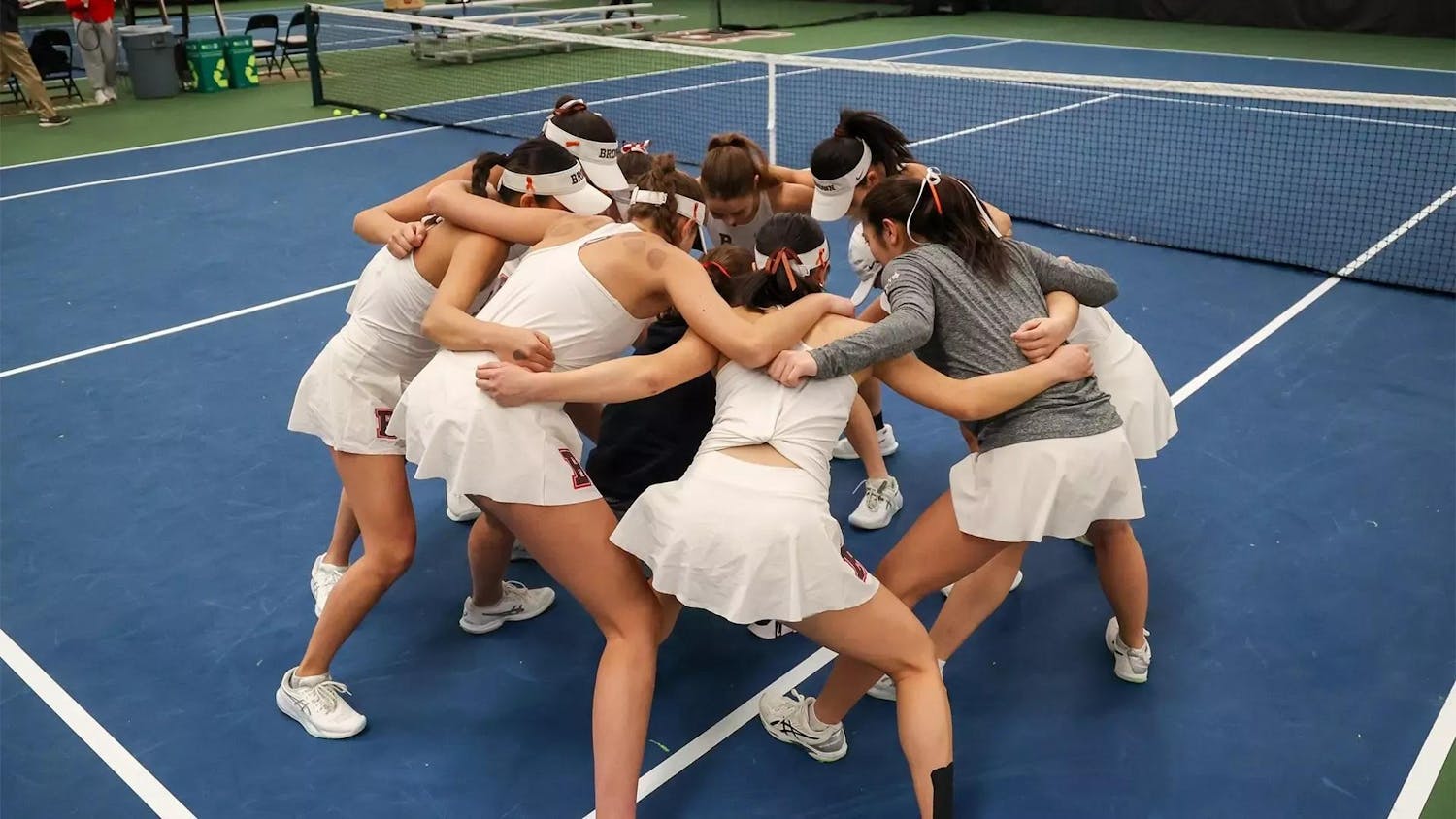Some students do little more traveling than going back and forth between Brown and home at the beginning and end of each semester. For others, their journeys may include a semi-routine trip to visit a significant other, the rare weekend city trip or the rarer, exotic trip over breaks.
But for athletes at Brown, traveling is a part of every team’s week-to-week schedule. Once the season gets underway, the reality of long bus rides, inconvenient plane trips and conflicting schedules rears its ugly head.
“No matter if it’s on a bus or a plane, it’s hard on your body when you travel,” said Payton Smith ’17, whose volleyball team took a trip to New Mexico early in the semester. “Especially after you play a lot of games, coming home, it’s always a tough trip.”
The men’s water polo team also regularly takes long in-season trips. Every year in late October, the Bears spend about four-and-a-half days in California for the Rodeo Santa Clara Bronco Invitational. Brown takes on several Golden State-based teams during the tournament — as does Harvard, which also makes the long flight out.
“It’s definitely difficult,” said Henry Fox ’15, who was a member of last year’s team that earned a bid to — and another trip to California for — the NCAA tournament. “On those trips you miss one-and-a-half days of classes and usually take red-eye Sunday flights.”
The academic side of being a Brown student-athlete faces its biggest challenge during road games, especially long-distance ones that require players to miss at least a day of school for traveling and on-site preparation. For men’s water polo, an NCAA berth at the end of the season meant another trip to California right as most Brown students were preparing for finals.
“The NCAA tournament game in California was definitely an unexpected surprise,” Fox said. “We worked really hard to achieve that. It was in late November, so that was really difficult for people and preparing for finals, but we have to deal with that.”
In the case of women’s volleyball, a trip to New Mexico for the NMSU/UTEP Invitational came at the beginning of September — when students are still in the early stages of shopping period.
Missing classes due to trips can make athletes feel as though they are falling behind their peers.
“We do the best we can — we hear from the teacher (over email) and watch online lectures,” Smith said. “But it’s different than going to the classes, and that’s something we have to balance and give up as athletes. We have to deal with that the best we can.”
But some professors are better at accommodating student-athletes and their schedules. The water polo team’s NCAA tournament trip was one of the most highly anticipated trips of the year, and Fox said professors were willing to work with his suddenly changing schedule. Professors are typically “good about understanding and allowing an extension or something if necessary,” he said.
“I try to email the professors before the class starts to let them know I’m an athlete and that I might be missing classes,” Smith said. “If that’s an issue with the professor, then I steer clear of that class, but in my experience I’ve had no issues with it.”
For many student-athletes, limited study time due to travel enhances their academic focus or forces them to do homework in unique settings.
“It’s part of the season, and I think people are good about preparing before or doing work on the plane rides,” Fox said.
“My grades tend to be better during the season,” said Will Klein ’16, another member of the men’s water polo team. “Time to study is so limited that guys typically are in the library or at home doing work if they’re not training.”
It’s not just Klein — the men’s water polo team was honored in 2014 for achieving the best grade point average among Division I water polo teams.
“It’s tough to do work on a bus or anywhere when you’re traveling,” Smith said. “It’s my junior year, so I know how to handle it. I try to stay up later during the week and get all my work done prior to the trip. I try to wake up early on Sunday and do work all day because we usually have games on Fridays and Saturdays.”
Klein is no stranger to working on bus rides. With two papers due the Monday after a trip to the Ivy Championships at Penn in 2013, he found the bus ride back to Brown Sunday night “one of the most stressful academic moments of my time at Brown.”
“We get our schedule before and try to make sure we do work before the academics are going to kick in,” he said. “I’m usually good about getting ahead, but some guys can get pretty overwhelmed.”
Despite the myriad of challenges posed by team travel, athletes expressed appreciation for the memorable experiences it provides.
Annual trips to California were “always one of the highlights of the season,” Fox said.
“We get such a great experience out of getting to travel and having the opportunity to go to places like New Mexico or the other Ivy League schools,” Smith said.
“It’s tough on our bodies; it’s tough to miss school, to miss a class and do work on the road,” she added. But “there’s a positive in that, like the team bonding experience and how we can hang out together. We do our work together and grow as a team in those hours that we have on a bus or on a plane.”
“We wouldn’t sacrifice those trips for anything,” Fox said.





